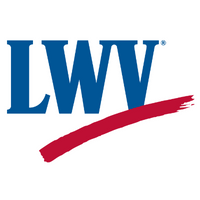Nonpartisanship Policy: Talking Points for Local Leagues
The League of Women Voters of Pennsylvania is proud to be nonpartisan, neither supporting nor opposing candidates or political parties at any level of government, but always working on vital issues of concern to members and the public.
LWVPA seeks to ensure League leaders and members have a firm understanding of the nonpartisanship policy of the League, and have the tools and knowledge to respond to criticisms or questioning of our policy.
Definition of nonpartisan: not partisan especially : free from party affiliation, bias, or designation – Merriam Webster
Here are some talking points for use by your local League to explain our nonpartisan policy:
1. The League’s nonpartisan stance is long standing. The Board of Directors of the League of Women Voters of Pennsylvania made a choice in 1920 to neither support nor oppose any political party or candidate for public office to ensure that the League’s voice is heard above that of party politics.
2. The League is proud to be nonpartisan, neither supporting nor opposing candidates or political parties at any level of government, but always working on issues important to members and the public.
3. Issues are not partisan. The League’s advocacy work is issue-based, and we arrive at our positions based on careful study and input from our members in communities across Pennsylvania. We can be in agreement with a politician or candidate on an issue — but that does not mean we endorse the candidate. We also NEVER provide funding to political candidates or parties.
4. The League’s credibility is founded on being an effective nonpartisan political organization in the community.
5. The League’s nonpartisan stance does not mean that the League does not get involved in controversy. When the League takes a position on a matter, it only does so after extensive research and a consensus reached by the board and membership. The League’s public statement on an issue focuses on the facts underlying the issue and provides the rationale for the League’s position. The public statement does not focus on a particular politician, party or candidate who may support or oppose the issue. If you or your league is accused of being partisan because of its position on an issue, refocus the discussion on the issue itself, and not on political parties or partisan positions.
6. The League’s purpose and mission is to educate voters on issues regarding voting and democracy. As part of its mission to educate voters, the League:
a. Hosts candidate forums and invites all candidates from all parties running for the particular office. If there are only two candidates for an office and one does not accept the invitation to participate in the forum, the forum will not be held.
b. Supports the website VOTE411.org. VOTE411 is an internet platform in which voters can get information on all candidates who will appear on their ballot, learn their polling locations, the requirements for mail in/absentee voting and other information that will assist a voter in a particular election. Candidate information includes biographical information and responses to questions pertinent to the office that they seek. All candidates for a particular office are invited and encouraged to participate.
c. Creates presentations/has speakers on subjects such as election law and policy, voting process, redistricting, Civics 101, the primary system open and closed, and alternate voting systems, to name a few.
7. Local Leagues meet with all legislators representing their area to discuss the legislator’s issues and the League’s issues. A relationship is developed based upon mutual respect and good faith.
8. The LWVPA Board is made up of registered Democrats, Republican and non-affiliated (independent) voters.
9. LWVPA Board members must sign a nonpartisan policy that contains explicit restrictions on political activities of Board members, including but not limited to the following prohibitions:
a. Running for or holding any partisan political office
b. Chairing a political campaign or administering fundraising for a political campaign, chair a campaign event, be a spokesperson, or work in any other significant way in the campaign of a candidate for a partisan office at any level of government.
c. Serving in any official capacity in a political party organization
d. Making campaign contributions to campaigns or candidates for any federal or state office or to political parties or other entities contributing to federal or state races.
e. Indicating their political affiliations or candidate preferences at any level of government in the media, including on social networking sites or other public venues that also prominently identify them as a member of the LWVPA/CEF Board.

